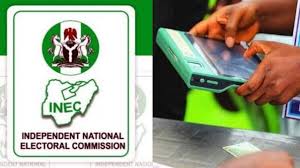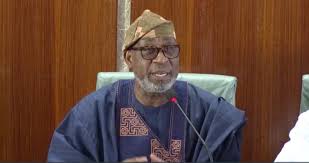By Armsfree Ajanaku
With political campaigns for the 2023 general elections already in full swing, election stakeholders have expressed worries over the deluge of fake news overshadowing the early days the election campaigns.
From the Independent National Electoral Commission (INEC) to frontline civil society organisations, anxiety is mounting that core issues of governance could be jettisoned in the political conversation as supporters of political actors outdo themselves in spreading misinformation in order to gain the upper hand in the electoral contests.
The Explainer, which is closely observing online and offline spaces in order to combat fake news, misinformation and disinformation has documented several false claims aimed at hoodwinking the electorate into believing false political narratives, just as other peddlers of fake news have targeted unsuspecting members of the public with false information about INEC recruitment.
Recently, The Explainer fact-checkers spotted a captioned picture in circulation, with the claim that the young man in the image is the son of Lagos State Deputy Governor, Obafemi Hamzat, and that he marched with supporters of Peter Obi during their Independence Day rally in Lagos. Emerging facts, including a statement from the Media Office of the Lagos State Deputy Governor have shown that the young man in the image is not the son of the Lagos State Deputy Governor.
Debunking the claim in a statement signed by Mr. Tunde Alao, his Special Assistant on Media, the Deputy Governor berated those spreading the fake news. He said: “For the avoidance of doubt, the gentleman in the displayed photograph is neither the Deputy Governor’s son nor his relative.
“The viral message is another mischievous, false, and malicious attempt to cause friction between the Deputy Governor and his admirers and loyalists across the nation. Dr. Hamzat has a reputation of commitment and loyalty to the Sanwo-Olu-led administration and the All Progressives Congress (APC). His support is for Asiwaju Bola Ahmed Tinubu and Senator Kashim Shettima. We hope that Nigerians will detect these tendencies to deceive and see it for what it is. It is too late in the day to keep lying to Nigerians. It won’t work,” the statement read.
In a related development, the electoral umpire, INEC has distanced itself from a fake ad-hoc staff recruitment call circulating on social media. The fake recruitment announcement, which urges unsuspecting members of the public to visit a particular portal for registration gives requirements, which applicants must meet. In a graphic debunking the fake recruitment call, INEC urged the public to “disregard the fake link and avoid falling victim of swindlers. The INEC Ad-Hoc Recruitment Exercise is absolutely free of charge. No payment of any kind is required throughout the application process.”
In the face of these anomalies, frontline pro-democracy group, the Centre for Democracy and Development (CDD) has been admonishing political actors and their supporters to desist from spreading fake news. The group noted that the current nature of campaigning is cause for concern.
In a statement by its Director, Idayat Hassan, the group lamented that: “The period has been dominated by a proliferation of electoral disinformation, misinformation and the weaponisation of fake news. This rising trend poses the biggest threat to the peaceful pre- and post-election conduct of the elections.
“This is because fake news and disinformation has the potential to further fragment the country and skew the electoral outcome. This could play a part in affecting the legitimacy of the elections and the leaders who emerge from the process. In recent years, CDD has increasingly raised concerns on the potentially disruptive influence of disinformation on elections.”
The Centre has noted the common forms of disinformation in elections include the dissemination of false information to discredit political opponents or to influence voters and the voting process. These in addition to the falsification and/or manipulation of contents, polling data, delegitimisation of electoral institutions, including INEC, the Nigeria Police and other state agencies.
The group therefore admonished that the spread and impact of disinformation is a global concern and a threat to the sustainability of democracy across the world. “This is why we urge stakeholders to come to terms with the fact that that disinformation may have a significant impact on the outcome of an election.”























